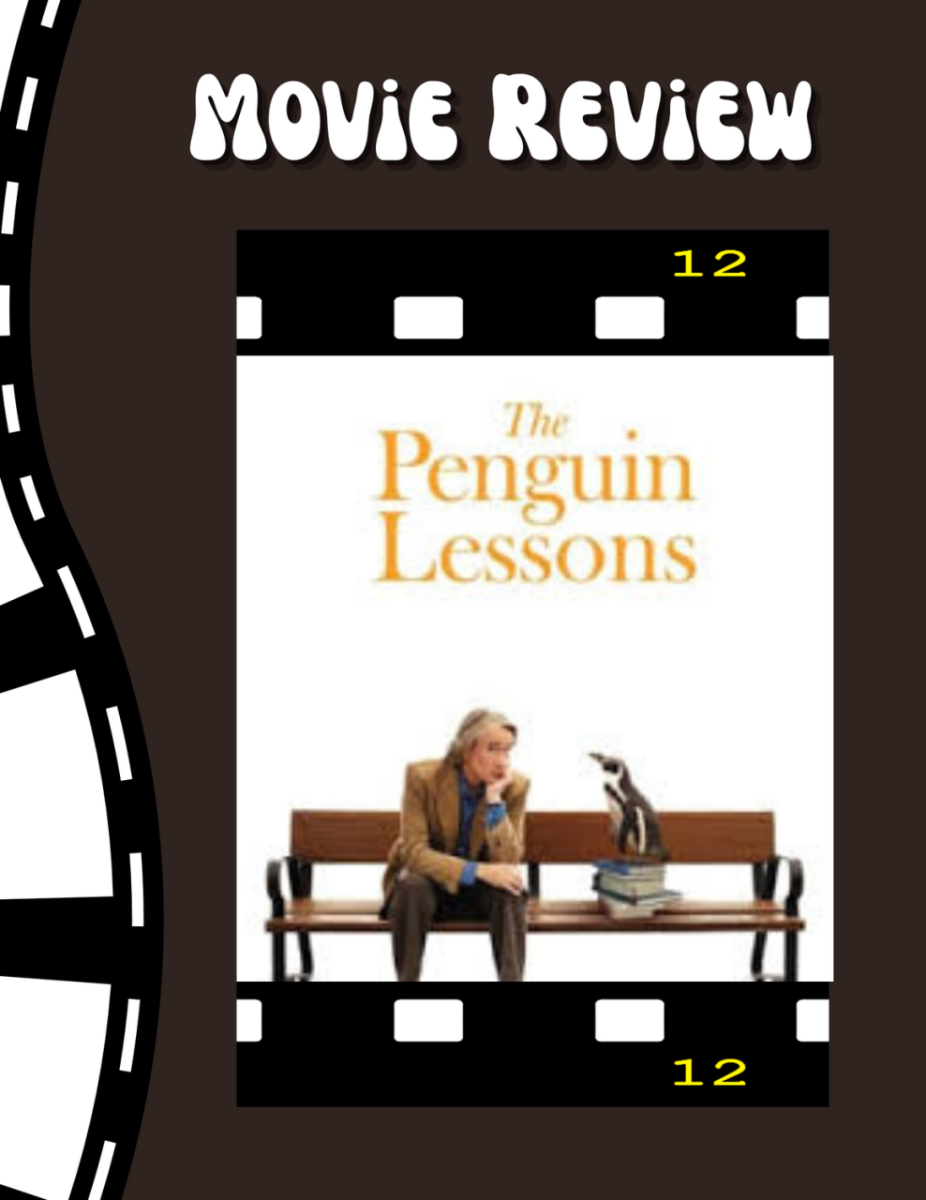
Karla Carrillo
“The Penguin Lessons” is a new movie based on Tom Michell’s autobiography of the same name. It follows Michell, a young man who leaves England to teach English in Argentina in the 70s. While visiting Uruguay, he finds and saves a penguin trapped in an oil slick, eventually taking the penguin, which he dubs Juan Salvador, back to Buenos Aires with him.
While based on Michell’s memoir, the film takes quite a bit of creative license with the narrative. It changes the context of the day Michell came upon Juan Salvador, the stage of life Michell is in, and the focus of the narrative.
Despite these differences, the movie stands on its own as a well-crafted piece. It’s slow-paced, introspective, and leans heavily into the political atmosphere of 1970s Argentina—multiple coups, disappearing innocents, and the constant fear of saying the wrong thing. Some scenes have awkward silences that feel like they are begging to be filled, but life often leaves silences, and the film seems committed to reflecting that reality.

Although the filmmakers presented an emotionally resonant story that was beautifully shot, I was still unsure of the penguin’s overall importance to the plot. Michell notes the dangerous political situation in Argentina in his book and how it rarely affected his daily life.
The book was about Juan Salvador and how this unlikely companion changed him. In the film, though, the new character of Sofia serves as Tom’s catalyst for change. Juan Salvador is here — there is most definitely a penguin in the movie — but he serves more as a plot device to connect Tom and Sofiya than as a central figure in his own right.
The film is, in many ways, about a man who tends to step back and allow life to unfold around him, and he gradually learns to respond and engage, standing up for what he believes is right.
In contrast, the book was a story of a man taking an adventure, saving a life, and changing

his own a little bit along the way. The movie is more a commentary on the volatility of 1970s Argentina, whereas the book was a lesson on appreciating life while it is there and living it to the fullest—a lesson taught by a penguin.
I’ll admit, I was a bit disappointed that the film didn’t focus more on the penguin. Still, it was well-made, and oddly enough, my biggest complaint walking out of the theater was that I couldn’t immediately listen to the soundtrack again.
I have always been a stickler for movies being like books, especially when they are the personal stories of a man still alive today. However, this movie made the story its own in a very artistic and well-structured way. I would certainly watch it again.
That said, if I had the choice, I would rather see 23-year-old Tom Michell save a penguin in Uruguay and learn from that penguin the art of friendship and appreciating the life in front of him.